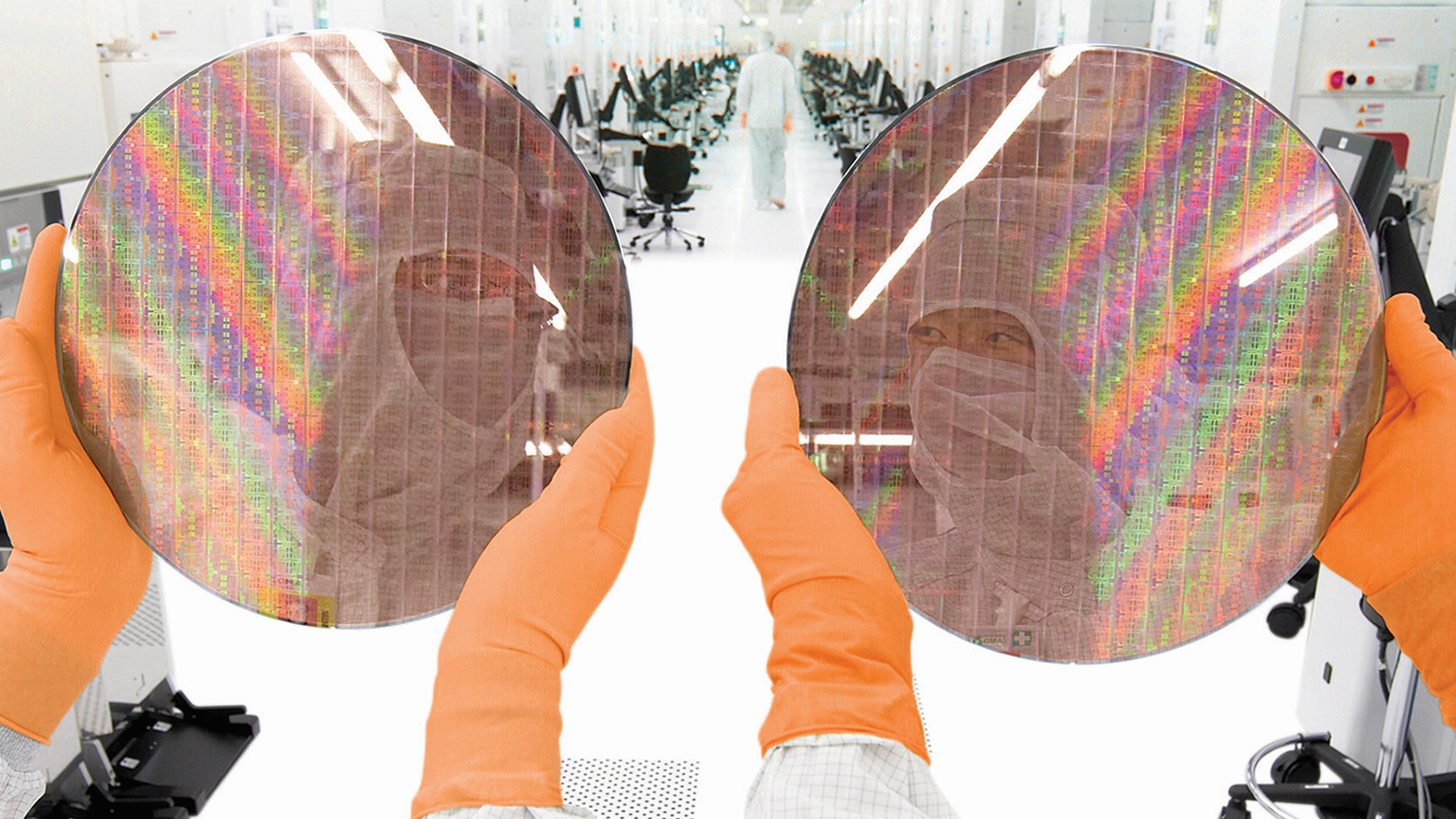IBM and GlobalFoundries settle lawsuits over chipmaking tech given to Intel and Rapidus
Ready to work together again.

GlobalFoundries and IBM have resolved all their legal disputes, including the ongoing lawsuits over contract violations, trade secrets, and intellectual property issues. The two companies signed a confidential settlement agreement, opening the door for future collaboration.
IBM and GlobalFoundries filed multiple lawsuits against each other. The lawsuits span from breach of contract obligations by GlobalFoundries to intellectual property usage by IBM. The conflict traces back to 2015 when IBM sold its semiconductor manufacturing business to GlobalFoundries. As part of the deal, IBM agreed to pay $1.5 billion to GlobalFoundries to take over its microelectronics operations and would continue developing advanced process technologies for IBM's processors for mainframes and other applications.
However, GlobalFoundries ceased to develop advanced production nodes in 2018 as it did not have enough high-profile clients to justify multi-billion investments. As a result, it did not have a 7nm-class process technology to make IBM's Z processors meet its partner's needs. As a result, IBM alleged that GlobalFoundries failed to deliver on its promises in 2021. IBM claimed that the semiconductor manufacturer left IBM without high-performance processors necessary for mainframes and sought compensation for damages and negative impact on its business.
In 2023, GlobalFoundries filed its lawsuit, accusing IBM of disclosing sensitive intellectual property to third parties, including Intel and Rapidus. The IP was related to next-generation process technologies and was developed together with GlobalFoundries, so according to the company, IBM had no right to share it after selling its microelectronics unit. The chipmaker argued that IBM could profit from licensing technologies it no longer owned by disclosing the IP.
After years of conflict, the two companies announced a settlement this week. While the terms of the agreement remain confidential, both IBM and GlobalFoundries expressed a desire to move forward and explore potential areas of collaboration.
"We are pleased to have reached a positive resolution with IBM, and we look forward to new opportunities to build upon our long-standing partnership to further strengthen the semiconductor industry," said Dr. Thomas Caulfield, president and CEO of GF.
"Resolving these disputes is a significant step forward for our companies and will allow us to both focus on future innovations that will benefit our organizations and customers," said Arvind Krishna, Chairman and CEO of IBM.
Get Tom's Hardware's best news and in-depth reviews, straight to your inbox.

Anton Shilov is a contributing writer at Tom’s Hardware. Over the past couple of decades, he has covered everything from CPUs and GPUs to supercomputers and from modern process technologies and latest fab tools to high-tech industry trends.
-
TheSecondPower It's hard to understand why Global Foundries gave up on 7nm in light of this. AMD had suddenly turned around and its sales were growing rapidly, and not delivering 7nm meant that Global Foundries missed out on a lot of that success. Even if it had been the last new node, GloFo 7nm would probably have been the I/O die for Ryzen 9000 desktop chips. Global Foundaries missed out on that and exposed itself to liability from IBM. I can't imagine why unless AMD was already interested in leaving for TSMC.Reply -
thestryker Reply
AMD sold their fabs because they couldn't generate enough revenue to operate leading edge with their volume. Apple was firmly entrenched with TSMC, and there were no other big volume leading edge players. GloFo canceled development of their 7nm process the year TSMC was shipping products on it which should also indicate how far behind they were with development. While I agree the company's long term health would have been better it was hemorrhaging money still and not investing in EUV machines was the way they chose to stem the bleeding.TheSecondPower said:It's hard to understand why Global Foundries gave up on 7nm in light of this. AMD had suddenly turned around and its sales were growing rapidly, and not delivering 7nm meant that Global Foundries missed out on a lot of that success. Even if it had been the last new node, GloFo 7nm would probably have been the I/O die for Ryzen 9000 desktop chips. Global Foundaries missed out on that and exposed itself to liability from IBM. I can't imagine why unless AMD was already interested in leaving for TSMC. -
phead128 Reply
You have to have customers to justify the investment into leading edge. EUVs, fabs, equipment are very costly, you need revenue to offset and recoup the huge investment. Intel is experiencing this dilemma as we speak, almost no major secured customers, definitely not enough to justify the costly investments into fab expansion and 18A.TheSecondPower said:It's hard to understand why Global Foundries gave up on 7nm in light of this. AMD had suddenly turned around and its sales were growing rapidly, and not delivering 7nm meant that Global Foundries missed out on a lot of that success. Even if it had been the last new node, GloFo 7nm would probably have been the I/O die for Ryzen 9000 desktop chips. Global Foundaries missed out on that and exposed itself to liability from IBM. I can't imagine why unless AMD was already interested in leaving for TSMC. -
gg83 I hope GF can work with IBM to produce future tech here in upstate New York. The timing really sucked for the 7nm chips. AMD probably couldn't predict how many chips they would need. If AMD and IBM were the only ones at the time interested in GF 7nm chips, that wouldn't be enough. They were having terrible yields going smaller than 12nm so they had to stop. But then budget Asian fabs are making legacy nodes, so what does GF do now? American military contracts i guess?Reply